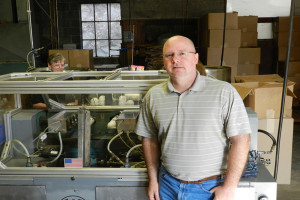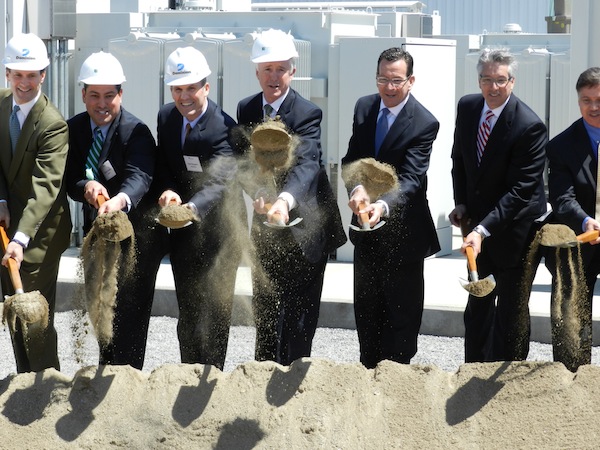The ability to throw a curveball: It”™s what separates the wanna-be”™s from the bona fide pitchers. At least until the Mullanys came along.
The idea for the first Wiffle ball was conceived in 1953 when David and Stephen Mullany”™s father and grandfather, who lived in Fairfield at the time, were experimenting with plastic golf balls in search of the perfect curveball.

After perfecting the design, “My grandfather took out a second mortgage and borrowed some money and here we are,” said David Mullany, president of Wiffle Ball Inc., which has been headquartered in Shelton for all but the first six years of the company”™s existence.
Aside from changes in scale to make way for baseball-, softball- and golf ball-sized Wiffle balls (the original Wiffle ball most closely resembles what today is marketed as a junior-sized ball) and a shift from wooden to plastic bats in the early 1970s, the company”™s products have undergone remarkably few ”“ if any ”“ changes since the beginning.
“The process itself has not changed,” said Mullany, while his father, who at 70 still works a full-time schedule, looked on from the production floor. “The equipment has gotten a lot more sophisticated though.”
Each year, “millions and millions” of Wiffle balls are churned out from the Shelton factory that doubles as a corporate headquarters, with the bats made at a separate facility to the north of Hartford.
Since the Bridgeport Avenue factory opened in 1959, there hasn”™t been a single Wiffle ball made elsewhere. Once molded, balls and bats are united at the factory, where they are inspected and prepped for shipment.
In addition to reaching consumers across the U.S., Mullany said Wiffle Ball Inc. works with merchants across South America and in Canada, Japan, Taiwan and South Korea.
The production process is “fairly automated,” Mullany said, which allows the company to get by with a relatively small staff. He said that during busy periods, the facility is manned by 15 or 20 employees.
“Most people who stop by are thinking, ”˜This is it, huh?”™ They think we must”™ve sold out to a larger corporation. But we”™re still here doing it,” Mullany said. “We”™re a small company with a big brand name.”
And a name worth protecting, he added.
“Our trademark over the years has been really important and we protect it vigorously,” Mullany said. “Not just any plastic ball out there gets to be called a Wiffle ball ”“ only if it comes from us. We spend a lot of time policing the brand. … It”™s something we have to do and take responsibility for pretty seriously.”
The family initially had no idea just how fast the business would take off.
When sales were just starting to grow, Mullany”™s grandfather approached a New York City sales representative for toy brands.
“He (the salesman) said, ”˜You might get a few years out of it.”™ A few years is coming up on 60,” Mullany said. “But at the outset, I don”™t think there was a thought that Wiffle would become ”˜the”™ brand.”
Today, Mullany and his brother Stephen, who together run the company, are greeted by tales of backyard epics wherever they go.
“And they”™ll always have a great story,” Mullany said.
All the while, there hasn”™t been a serious thought to leaving Shelton, where the company set up its permanent home after a short stint in Woodbridge.
“My brother and I grew up in Shelton,” Mullany said. “While we could do this pretty much anywhere, we still have roots in the community.”
Aside from one television advertisement that featured New York Yankees star Whitey Ford, the company has never had to take to the airwaves.
“I think a product that is honest and gives the consumer value is the best advertising there can be,” Mullany said. “We don”™t do any formal advertising … We”™re just here every day churning them out.”





















Comments 1